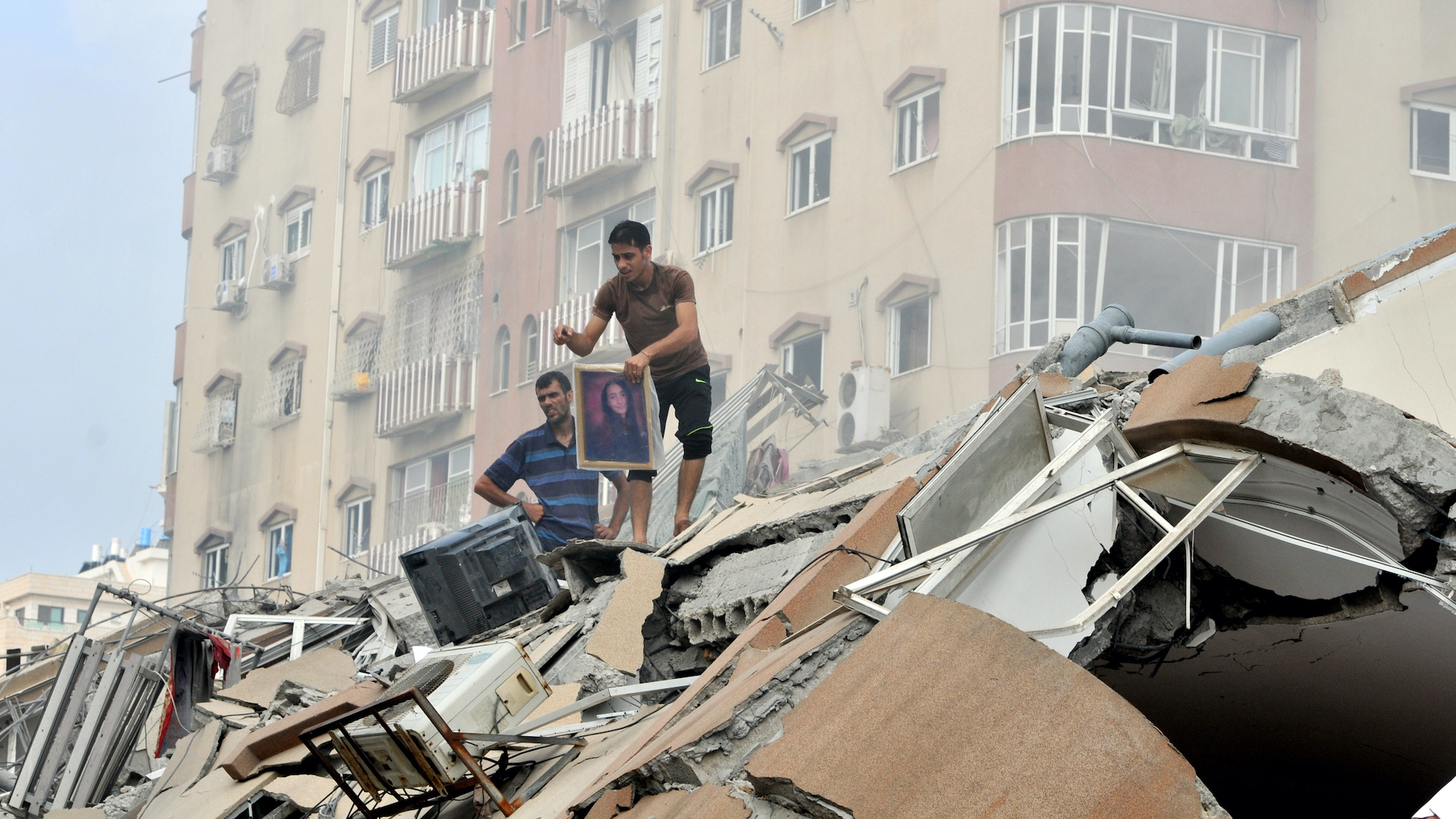The last six months have seen Gaza turned into a disaster zone, a place variously labelled as “apocalyptic”, “hell on earth” and a “graveyard for children”. As staggering as the death toll is – standing at more than 33,000 people, mostly women and children – it shockingly just includes those who have been killed in Israel’s military operation. The chronic lack of aid means that many more will inevitably have lost their lives to hunger and disease.
As the grim half-year milestone in this crisis is passed, the humanitarian picture is desperate. Every single person in Gaza is hungry and famine is imminent. With 85% of people displaced from their homes, most are living in hugely overcrowded and unsanitary shelters where there are almost 900 people per toilet or packed into flimsy tents. More than 180 women are giving birth each day in dangerous conditions and without medical supplies, including anaesthetics. Every hour, two mothers are killed in Israeli military attacks.
Yet even in the face of such appalling devastation, the UK has so far has fallen short of taking the tangible actions and measures required to apply real pressure on the Israeli government to change course in Gaza. While it has gradually issued increasingly more strongly-worded calls and statements demanding a pause to the fighting and more aid, it has simultaneously continued to arm Israel, while also withdrawing funding from UNRWA, Gaza’s biggest humanitarian relief organisation. It has subsequently ignored calls to follow in the footsteps of allies such as Canada, France, Finland, Australia, Sweden and the European Union by reinstating this funding.
The interim ruling issued by the International Court of Justice in January was crystal clear: the Israeli government must not engage in any acts of genocide in Gaza, such as the killing of Palestinians, and must ramp up humanitarian relief. States such as the UK have a legal obligation to ensure these measures are complied with. The UK was a key influence in the creation of the conventions on genocide. But not only did the UK not step up its diplomatic efforts, the government dismissed the court’s findings by reducing South Africa’s case to a mere ‘hideous charge of genocide,’ in the House of Commons, in what was a direct affront to the very principles of justice and accountability that underpin our global order.
Even after the horrifying news that three British citizens were among the seven aid workers tragically killed by Israeli strikes last week, and despite the fact that a majority of the British public supports an arms embargo, the UK has not heeded growing calls to cease arms transfers to Israel, or published the legal advice it has received on the matter. Instead, it responded with yet another statement, and has since reiterated that arms exports to Israel will continue. It is unconscionable to continue arming a country which has admitted to using its weapons against aid workers, including British citizens. Diplomatic relations, either with Israel or the USA, should not supersede complicity with international humanitarian law.
- ‘Why do terrorists target the most beautiful among us?’: Reality of life in Israel after Hamas attacks
- Netanyahu clinging to power has left Israel in crisis
It is beyond time for a major shift in the UK’s response to this crisis. More than two weeks have now passed since the UN Security Council called for a temporary ceasefire – yet the bloodshed has continued unabated. It is deeply worrying to see the will of world leaders, which this resolution represents, ignored so blatantly. The lack of action over this vote risks making a mockery of global democratic institutions meant to uphold peace and promote human rights worldwide. The UK may have voted in favour of the resolution, but it cannot claim the moral high ground: without taking steps to see it implemented, the vote is nothing more than symbolic.









